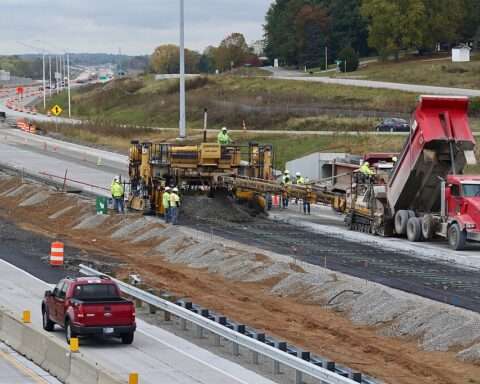Atlanta is set to launch its first comprehensive plan to address climate resilience and the disproportionate impacts of climate change. The Climate Resilience Action Plan, which will be released on April 30, is a blueprint designed to build the city’s capacity for preparing, adapting and responding to the impacts of climate change.
The Mayor’s Office of Sustainability and Resilience spent 18 months studying, investigating and gathering community input into how Atlanta’s three primary climate challenges affect the city’s various populations. The work identified extreme heat, drought and flooding as the city’s primary climate challenges.
They also investigated disproportionate energy burden as the city consistently ranks in the nation’s top five cities for energy burden. Energy burden is indicated by the percentage of household income spent on energy bills. If the household spends 6% or more of its monthly income on energy, it is considered energy burdened. In Atlanta, many households spend between 6% and 19% of their monthly income on utilities and would therefore be classified as energy burdened.
The Climate Resilience Action Plan sets out goals to address the inequity in energy burdens as well as the three main climate challenges the city is facing. Along with the goals listed below, the plan explains how the city can respond and act on them at both the municipal and neighborhood levels.
- Clean Energy – 100% clean energy for Atlantans by 2035
- Climate – Reduce greenhouse gas emissions by 59% by 2030
- Community – Reduce the energy burden for 10% of the city’s most energy-burdened households
- Transportation – Add 250 electric vehicle charging stations in 2025
- Urban Agriculture & Food Systems – Fresh, healthy food access within a half-mile of accessible distance for all Atlantans by 2030
Along with the goals above, the Climate Resilience Action Plan includes a pilot project and numerous partnerships. The pilot project will study how to make houses more energy-efficient before installing alternative energy sources such as solar panels.
The partnerships include working with Invest Atlanta’s Owner-Occupied Rehab Programs, which offer forgivable loans for homeowners to weatherize and make critical home repairs. Work will also be done with Sustainable Georgia Futures, an organization that helps contractors grow their businesses by offering weatherization and energy-efficiency upgrades. The partnerships are a crucial part of the plan’s success.
A 32-member Climate Resilience Advisory Board is also set to be created under the new program. It will include agency partners from Atlanta Housing Authority and Metropolitan Atlanta Rapid Transit Authority, as well as residents from Atlanta’s most energy-burdened neighborhoods. Those selected to be on the board will serve two terms before transitioning to be a part of a resource network. The network currently has over 100 members.
Atlanta was set to receive federal funding for the Climate Resilience Action Plan but has faced some bumps in achieving the funds from the current administration. Specifically, the plan’s focus on creating energy equity has put its federal funding at risk due to efforts to eliminate diversity, equity and inclusion. Grant work within the project is on hold as the terms are updated to remove this DEI language.
However, the city expects to move forward with the plan and address inequity in energy burdens regardless of the uncertainty in federal support. The necessary paperwork for all efforts will be in order and ready for resubmission to the government for funding as soon as it becomes possible to do.













